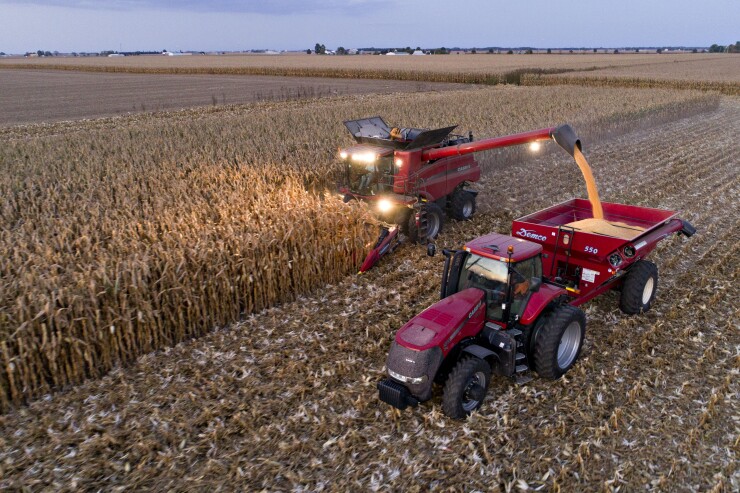DLL Finance, a U.S. affiliate of Dutch bank Rabobank, is preparing its debut securitization of equipment loans and leases.
The deal, DLL Securitization Trust 2017-A, is unusual in that it is backed almost entirely by agricultural equipment, according to Moody’s Investors Service. By comparison, other lessors such as CNH and John Deere securitize a mix of agricultural and construction equipment.
While farmers’ net cash incomes have recently stabilized following declines from 2014 through 2016, and they have historically low overall debt burdens, Moody’s feels that the transaction retains the risk inherent in its single-industry exposure.

This is the also first agricultural equipment transaction with exposure to residual value risk, which increases the potential volatility of the pool’s performance, since losses could arise if the leased asset is turned in and sold for less than expected. Residual value receipts on lease contracts will represent around 12% of the securitized pool balance.
Higher hard credit enhancement relative to agriculture equipment peers considerably mitigates the residual value risk however, says Moody's.
S&P Global Ratings takes comfort from the collateral's "significant seasoning" of approximately 21 months, the fact that there is a mix of both commercial (75%) and consumer (25%) obligors, and individual obligor concentrations of less than 1.00% each.
DLL has attempted to exclude contracts for obligors with billing addresses located in areas it believes were most adversely affected by Hurricanes Harvey and Irma. And there are no contracts for obligors with billing addresses in Puerto Rico.
Four tranches of notes will be issued in the transaction, $120 million of money market notes, and three tranches of notes with preliminary triple-A ratings from both Moody's and S&P: $165 million maturing in July 2020, $165 million maturing in December 2021, and $61.5 million maturing in November 2025. All of the notes benefit from credit enhancement of 11.3%.
Credit Suisse Securities is the underwriter.
Moody’s expects losses to reach 0.85% over the life of the deal.





